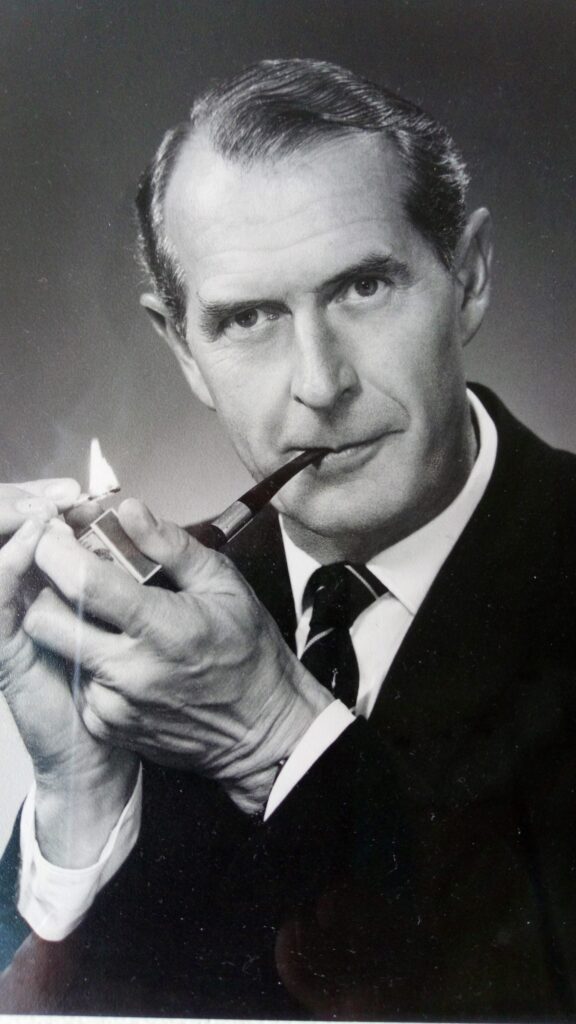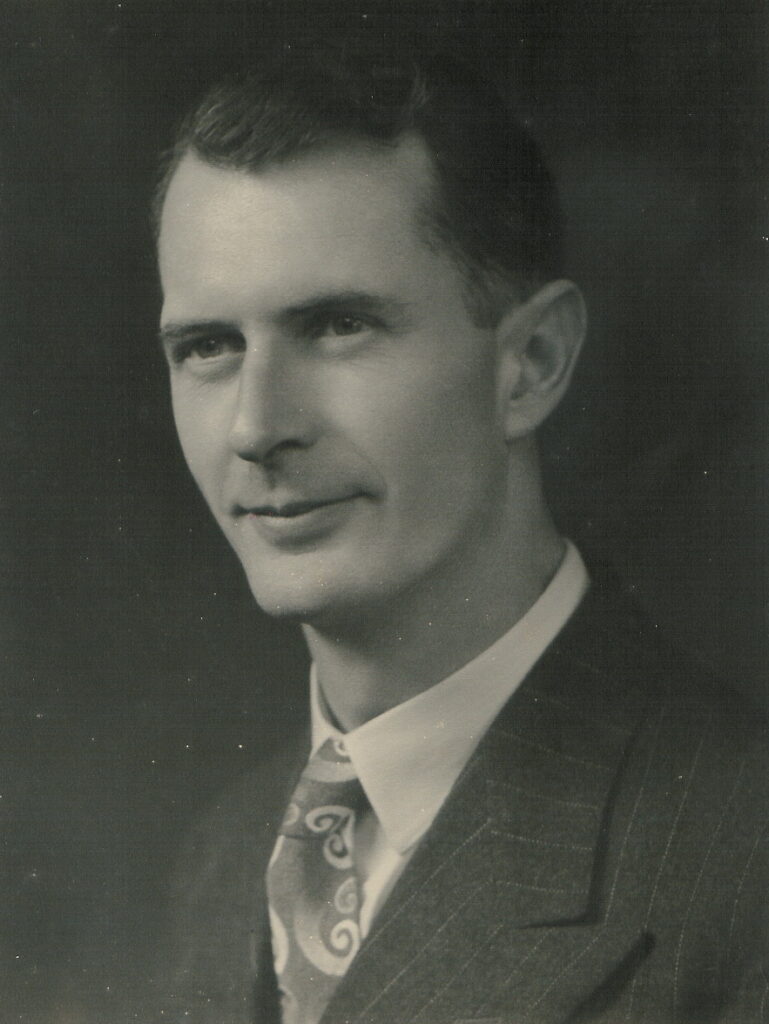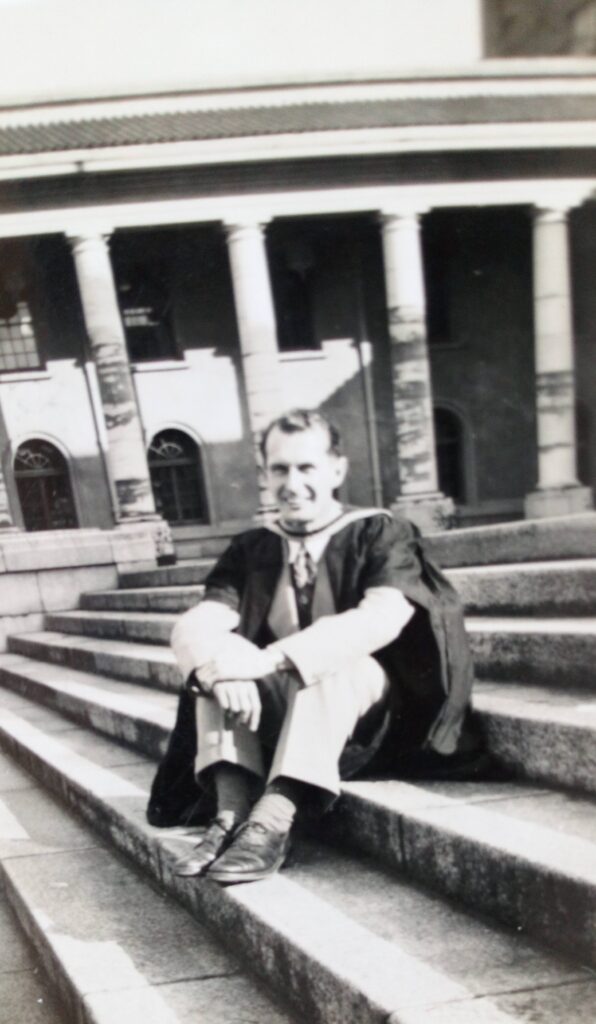When Norman Crawford Smith was invited to join Metropolitan-Vickers in 1949 he could hardly believe his good luck. In his final year at U.C.T. many of his lectures were delivered by Prof. Goodlet. He was a brilliant man and an excellent teacher. When asked by a student how a particular operation was performed he would consider for a moment and then say that you could do it this way or that way “But at Metrovick we always did it this way”. (He had received much of his training and engineering experience at M-V) So he came to understand that as far as electrical engineering is concerned, Metro-Vick was the Rolls-Royce of the profession.
In this blog, Norman Crawford Smith opens a window on what life was like in the maelstrom of corporations where sometimes idiosyncratic management styles and behavior created resentment and anxiety.
So I served many years (19+ in all) with this super-firm, learning all the time. The firm’s products ranged from the humble incandescent lamp through light- and medium-weight products to the largest turbo-alternators, transformers and switchgear. In the early ’60’s, as far as I can remember, the rival firm of GEC was in difficulties and proposed some sort of amalgamation with M-V, which proposal came to naught. A few years later, under new and dynamic leadership, GEC started buying M-V shares. The resulting price increases tempted more and more shareholders to sell (M-V share prices had not shown any outstanding performance over recent years) until GEC were in sight of obtaining a controlling interest. One very substantial shareholder (rumoured to be the Church of England) stood in the way. A final offer which was too tempting to refuse persuaded them to sell, and – GEC controlled Metrovick!
At first, life went on as usual. It was obvious that, because both companies in South Africa were adequately staffed, there would be redundancies. We retained my Managing Director for the time being and GEC retained theirs, one W M Blair. Reasonably enough, Blair toured the country to survey his dominions and meet the M-V personnel. He travelled in his private aeroplane (registration ZS-WMB!). Arriving in Port Elizabeth, he invited the local GEC branch manager (Dennis Witherspoon) and myself to lunch at Die Kelder in the Marine Hotel. It was a pleasant enough occasion (for me) until he expounded his policy. In a nutshell he expected the occasional resignation as staff realised that they might be retrenched and, as they occurred they were to be accepted and the member was not to be replaced. “I won’t have anybody holding a fl’***** pistol at my fl’***** head!”. (This type of language did not correspond with that used by my then MD “Jake” Crompton or by his predecessor David Stanley. The latter is a scion of the Derby clan in England). I began to wonder how WMB and myself were going to get on together and how I was going to run an office with a dwindling staff.
I had for a while noticed that my very able colleague and good friend Bill Evans had been sucking numbers of a proprietary tablet for indigestion. Eventually he was persuaded to consult his family doctor who, on investigation, diagnosed cancer of the colon. Realising that this could be serious I contacted the doctor and elicited the information that Bill had between 3 and 6 months to live. I won’t dwell upon the agony of his family or the distress to myself – we had been together for about fourteen years.
One of my meagre sales staff resigned. My secretary diffidently asked me what was her future, because she had been offered another job. Regretfully I said ”Take it!”.
I gathered what was left and invited them to a valedictory dinner. I complimented them on their devotion to the firm over some difficult years and thanked them. To my great embarrassment they presented me with a farewell present of a tobacco jar (I smoked quite heavily in those days).
I prepared my resignation, which I addressed to my Managing Director “Jake” Crompton. I explained that it had been a rough year and, with the additional burden of trying to run the show with a depleted staff (and above all with the probability that Bill would no longer be with us) I was tired and “wanted out”. Jake’s response was very complimentary and he regretfully accepted my resignation. (Unfortunately I had given three months’ notice to give my opposite number in GEC, Dennis Witherspoon, time to absorb the details of my office’s affairs. In the light of subsequent events I should have given six months!).
The next development was a phone call from Johannesburg advising me that Mr Blair would visit me fhe following day. He duly arrived, with an entourage that included his accountant. Storming into my office, he demanded “What’s this f”***** nonsense about your wanting to resign?”. I gave him the same explanation that I had given to Jake. He responded with “Well, if you’re tired, this is your last day – be out of here by to-night”. I explained that a fairly big tender was due to be submitted to the Municipality the next day and still had to be prepared. This did not impress him. He instructed his accountant to collect my cheque for the amount owing on my car and stalked out to check the petty cash. I spent the rest of the day clearing my desk despite the anxious query by the accountant as to whether I could proceed with the preparation of the tender! As instructed, I was out by just after normal quitting time. My three months’ notice was replaced by three months’ pay!
An interesting sequel was the arrival in Johannesburg some 18/24 months later of one Mr Lester, MD of GEC in London. For what reason I know not, but he entered Blair’s office and instructed him to clear his desk and be out by the end of the day. He also requested the keys of Blair’s (Company) Rolls-Royce.
My personal investments had been performing very well, so I had no qualms about the foreseeable future. I had moved into the very experienced Unit Trust Sage and the Stock Exchange was “on a roll”. We decided that it was time to re-model the house to make it more comfortable. This exercise kept me busy for many months and was highly satisfying. But May, 1969 was approaching. In that month the boundless exuberance of the Stock Exchange turned first to indifference and then to dejection. Some time before, my old colleague City Electrical Engineer Ralph Dunstan, had remarked “No tree ever grew to the sky!” How right he was! The Exchange went into reverse and some months later I sold my Units and began thinking of looking around with a view to getting back to paid employment.
I had, during those heady months of early retirement, started to learn to fly an aeroplane. But that must be the subject of another tale.
Note on the author
Norman Smith was the son of Harold Bayldon Smith, the last owner of No. 7 Castle Hill. Writing was clearly one of his skills. I have included the articles on Port Elizabeth under Port Elizabeth of Yore whereas those of a general interest have been published under Norman’s name. In about 1949 Norman Smith graduated from UCT as an electrical engineer and before his retirement he was the planning engineer for Port Elizabeth Electricity Department.




